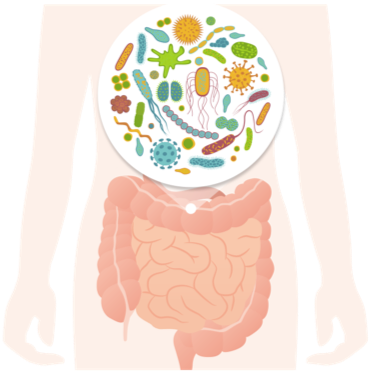-
 Dietary fibre benefits your health
Dietary fibre benefits your healthIn a study spanning over 40 years, researchers found that people who consume the most fibre in their diet are 15% to 30% less likely to die prematurely from any cause or a cardiovascular condition, compared with those who eat the least fibre1. That’s a big finding and health officials everywhere are calling for citizens to increase their fibre intake. But it is proving hard! Adults in America consume an average of 15 g of fibre per day and it speaks for many of the other countries consuming less than half of the recommended daily intake of 25 g for women and 30 g for men.
Most people will know that fibre is important for helping you stay regular (i.e. you need it to poop on a regular basis). Soluble fibre dissolves in water to form a gel-like material which makes your stool softer, while insoluble fibre (which doesn’t dissolve in water) acts as a bulking agent – bulky, soft stools are much easier to pass.
Apart from keeping you regular, dietary fibre also has other health benefits:
- Maintenance of bowel health
- Staying regular with soft bowel movements may help to reduce the risk of developing haemorrhoids and diverticular disease.
- Low fibre diets have been associated with colorectal cancer.
- Supports healthy weight management
- High fibre intake has been associated with lower body weight and the prevention of weight gain.
- High fibre foods tend to be more filling, helping to increase satiety (i.e. you feel fuller for longer) and reducing energy intake.
- Helps to control blood sugar levels
- Dietary fibre plays an important role in blood sugar management – high fibre foods have a low glycaemic index, meaning they release glucose into the blood slowly. Soluble fibre has also been found to reduce the rise in blood glucose following a meal and improve insulin sensitivity. This can help to reduce the risk of developing type-2 diabetes.
- Lowers risk of heart disease
- Apart from helping to control blood sugar and weight, dietary fibre, particularly soluble fibre, can also lower cholesterol levels.
Dietary fibre is found in fruit, vegetables, whole grains and legumes. Kiwifruit is a good source of dietary fibre and contains both soluble and insoluble fibre, mainly in the form of pectin, hemicellulose and cellulose.
- Reynolds A., Mann J., Cummings J., Mete E., Te Morena L. Carbohydrate quality and human health: a series of systematic reviews and meta-analyses. Lancet 2019 Feb 2, 393(10170):434-445
- Maintenance of bowel health



